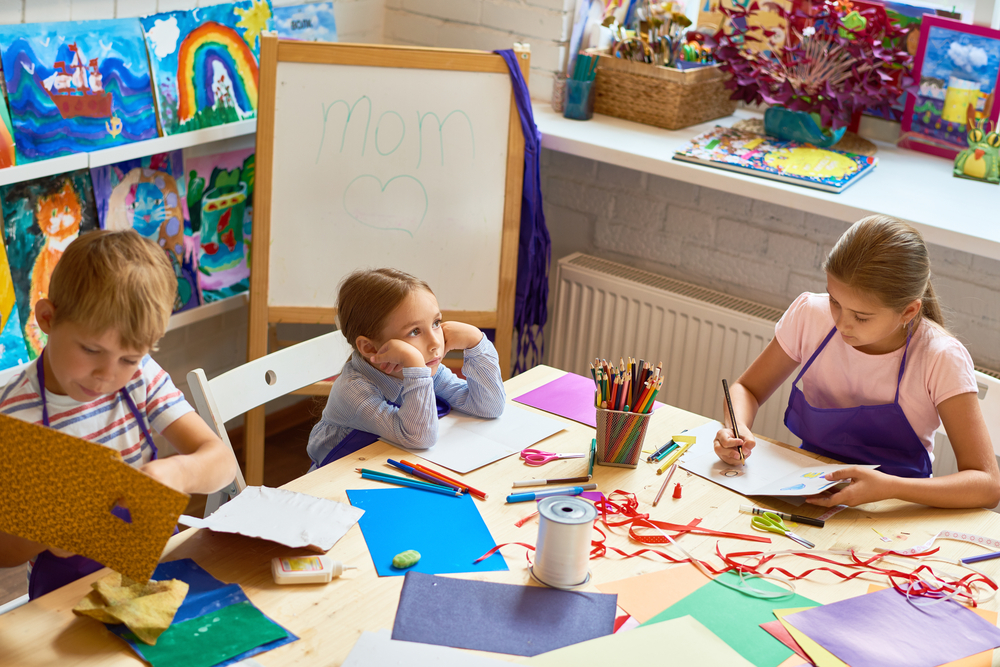All of us have daydreamed at some point in our lives, and some of us do it more than others for one reason or another. However, is daydreaming good for cognitive growth, or is it a distraction that you should be concerned about? The truth is, it can be both, but many factors need to be considered, as there are lots of benefits of daydreaming that can’t be ignored, both for adults and children.
What Happens in the Brain When You Daydream?

The brain function during daydreaming is fascinating — our brains fire off neurons in different parts of our brains when daydreaming, including the visual cortex. A study that was conducted on mice provided preliminary evidence that daydreaming is likely to play an important role in brain plasticity (i.e. its ability to change and essentially remodel itself when it has new experiences), and shape our brain’s future responses to the things it sees.
The default mode network is hypothesised to play an important role in dreaming, sleeping, and many cognitive processes, acting as the ‘internal mind’ in our brains. This is effectively a vast network of active brain regions that are active when we are doing simple tasks like thinking or reading, allowing us to daydream the way we do, along with the limbic system (which is involved in emotional responses) — but is daydreaming good for cognitive growth?
Is There a Link Between Daydreaming and Cognitive Growth?
Daydreaming is fantastic for cognitive growth, as it allows the mind to wander and contemplate new ideas and increase cognitive flexibility. Not only that, but it has also been linked to improving problem-solving skills, boosting creative thinking, and aiding in emotional processing. However, it’s important to remember that there is a difference between healthy daydreaming and maladaptive daydreaming—the latter of which can have negative consequences.
From the time we are born, our cognitive growth develops—from being an infant, to becoming a toddler and forming more complex thoughts and ideas. This encompasses our ability to reason, think, understand, and more, and the more we use the parts of our brains responsible for these things, the better at them we become. Daydreaming is crucial in these areas from a young age, and allows children and adults alike to improve on their skills.
If you are a parent who has a child who always seems to be in a world of their own, you have probably only heard one or two of the arguments about daydreaming, and they are not usually framed as being positive. However, is daydreaming good for cognitive growth, or are the arguments you have heard right, and should you do what you can to prevent or limit daydreaming in your home?
What Are the Benefits of Daydreaming for Children and Adults?

Daydreaming can help to foster creativity and enhance problem-solving skills in young children and adults alike. It is also beneficial for promoting emotional regulation and development, as well as improving various social skills and empathy via storytelling—making it a remarkably important part of development and growth for everyone, and something that should be encouraged.
Daydreaming and letting your mind wander is also key for allowing your brain to organise information and rest, allowing you to effectively use information better, according to some studies. It is helpful for allowing you to access memories and all kinds of information that our usual, daily cognitive activities make accessing otherwise difficult.
Created a Connection to Creativity
Many studies have looked into the daydreaming creativity link, finding that daydreaming is very closely related to creativity, and plays a key role in fostering creativity in young minds. The mental exploration that comes with daydreaming allows us to create new and exciting connections between concepts and ideas, boosting creativity and creative thinking, as well as both top-down and bottom-up creative thinking processes.
Aids in Problem-Solving Skills
Daydreaming, especially controlled daydreaming, is especially good for helping to improve problem-solving skills in children and adults. When you daydream about scenarios, problems, conversations, stories, and more, you can quickly go through ideas and modify them as-needed to get the desired outcome. It allows you to explore themes, uncover problems, and find solutions that are likely to work, whether you are taking creative licences, or grounding yourself in reality.
Because of this, daydreaming about goals or projects can be especially helpful in overcoming challenges related to them. For example, writers will spend a lot of time daydreaming about character arcs, plots, plot holes, and more, and come up with creative solutions to problems that furthers creativity.
Helps With Emotional Processing
Emotional processing comes in different forms, and daydreaming can help to get better at it and understand it more. This is especially true for recognising and understanding our own emotions, as daydreaming gives us a safe space to let scenes and scenarios play out in a sort of sandbox setting. It can help you become more self-aware, and gives you the chance to reflect on moments in your life, moments to come, or simply made-up scenarios.
When Can Daydreaming Be a Distraction?

Daydreaming can become a distraction if it is done too much, or if done at the wrong time or place. For many people, this will come in the form of maladaptive daydreaming, where you often have intense and vivid daydreams that distract you from the real world around you. This might happen because the daydreams are so immersive and rewarding that it might feel more important or better than your actual life, but this can cause more problems down the line, as it is not a solution to ongoing struggles.
Your daydreams should not be disrupting your work, daily life, or hobbies, and you should be able to snap out of it at any given moment by choice. Like anything, too much of a good thing can have negative consequences.
How to Encourage Healthy Daydreaming in Kids
You can encourage healthy daydreaming habits in your children by limiting screen time and tasks that take their attention away so that you physically give them the opportunity to daydream. Many children don’t daydream because there is always something in front of them to hold their attention, preventing their mind from wandering and exploring inner thoughts and creative ideas.
Give your child time for unstructured play where they can be independent and foster their own creativity in a healthy way. It may be helpful to provide them with books, art supplies, blocks, and other items of toys that can spark creativity and allow their minds to wander. As easy as it might be to place an iPad in front of them, this will not get the results you are looking for!
When we ask, ‘is daydreaming good for cognitive growth’, it’s easy for us to get stuck on the idea that daydreaming has long been associated with ADD, and this can cause worry for many parents. However, studies have shown that daydreaming is an important part of development and life for everyone, and it should be encouraged in young children for creativity, problem-solving, and emotional processing and regulation.
Tips for encouraging healthy daydreaming:
- Limit screen time
- Allow time for unstructured play
- Give them creative tools to stir their imaginations
The Brain Workshop Approach to Supporting Cognitive Development

Mental health and daydreaming go hand-in-hand, and the neuroscience of daydreaming is more fascinating than you might think, considering all the studies done over the years. However, many parents may be worried about this natural phenomenon and habit, and may ask, ‘is daydreaming productive?’ Luckily, if you are one of the parents asking, ‘is daydreaming good for cognitive growth?’, you will be relieved to know that it is, provided it is not maladaptive daydreaming.
Want to unlock your child’s full cognitive potential? Contact The Brain Workshop to learn how our results-driven brain training programmes nurture creativity and growth. Learn more about us at The Brain Workshop, meet our team, check our events, or even read our FAQ.
Read more from The Brain Workshop, including finding out more about bed rotting, doomscrolling (and how to tell if you are stuck in a loop), and TikTok and brain rot. For those who celebrate Ramadan, learn the effects of fasting on the brain, how to stay productive at school during this time, and how to manage exams.






